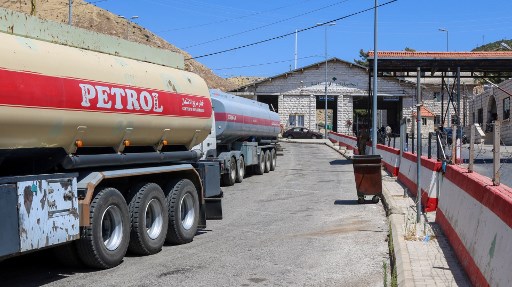
403
Sorry!!
Error! We're sorry, but the page you were looking for doesn't exist.
Hungary to pay Ukraine for transit of Russian crude oil via Druzhba pipeline
(MENAFN) Reports from Reuters on Friday indicate that Hungary is set to begin paying Ukraine for the transit of Russian crude oil via the Ukrainian section of the Druzhba pipeline, as it seeks to ensure the uninterrupted supply of oil. This move comes as Ukraine's state-owned oil pipeline network operator, Ukrtransnafta, announced that it will increase tariffs for transporting crude oil to Hungary and Slovakia by euro2.10 (USD2.28) per ton to euro13.60 (USD14.78), marking an 18.3 percent increase.
The announcement was made in late December, with Transneft, Russia's pipeline operator, confirming receipt of notification from Ukrtransnafta and stating that it was studying the proposed new rates. In response, the Ukrainian operator proposed that buyers of Russian crude transported via the Druzhba pipeline should pay the fees themselves, with Hungarian oil refiner MOL agreeing to make the payments.
Sources quoted by Reuters have indicated that the two companies will need to prepare a new agreement to reflect the increased transit fee that will come into effect from May. This development is significant as it highlights the complex nature of oil transit through multiple countries and the various negotiations and agreements that need to be made to ensure a smooth and uninterrupted supply of oil. The decision by Hungary to pay Ukraine for the transit of Russian crude oil is a strategic move to secure its energy supply and ensure the uninterrupted operation of its oil refineries.
The announcement was made in late December, with Transneft, Russia's pipeline operator, confirming receipt of notification from Ukrtransnafta and stating that it was studying the proposed new rates. In response, the Ukrainian operator proposed that buyers of Russian crude transported via the Druzhba pipeline should pay the fees themselves, with Hungarian oil refiner MOL agreeing to make the payments.
Sources quoted by Reuters have indicated that the two companies will need to prepare a new agreement to reflect the increased transit fee that will come into effect from May. This development is significant as it highlights the complex nature of oil transit through multiple countries and the various negotiations and agreements that need to be made to ensure a smooth and uninterrupted supply of oil. The decision by Hungary to pay Ukraine for the transit of Russian crude oil is a strategic move to secure its energy supply and ensure the uninterrupted operation of its oil refineries.

Legal Disclaimer:
MENAFN provides the
information “as is” without warranty of any kind. We do not accept
any responsibility or liability for the accuracy, content, images,
videos, licenses, completeness, legality, or reliability of the information
contained in this article. If you have any complaints or copyright
issues related to this article, kindly contact the provider above.


















Comments
No comment